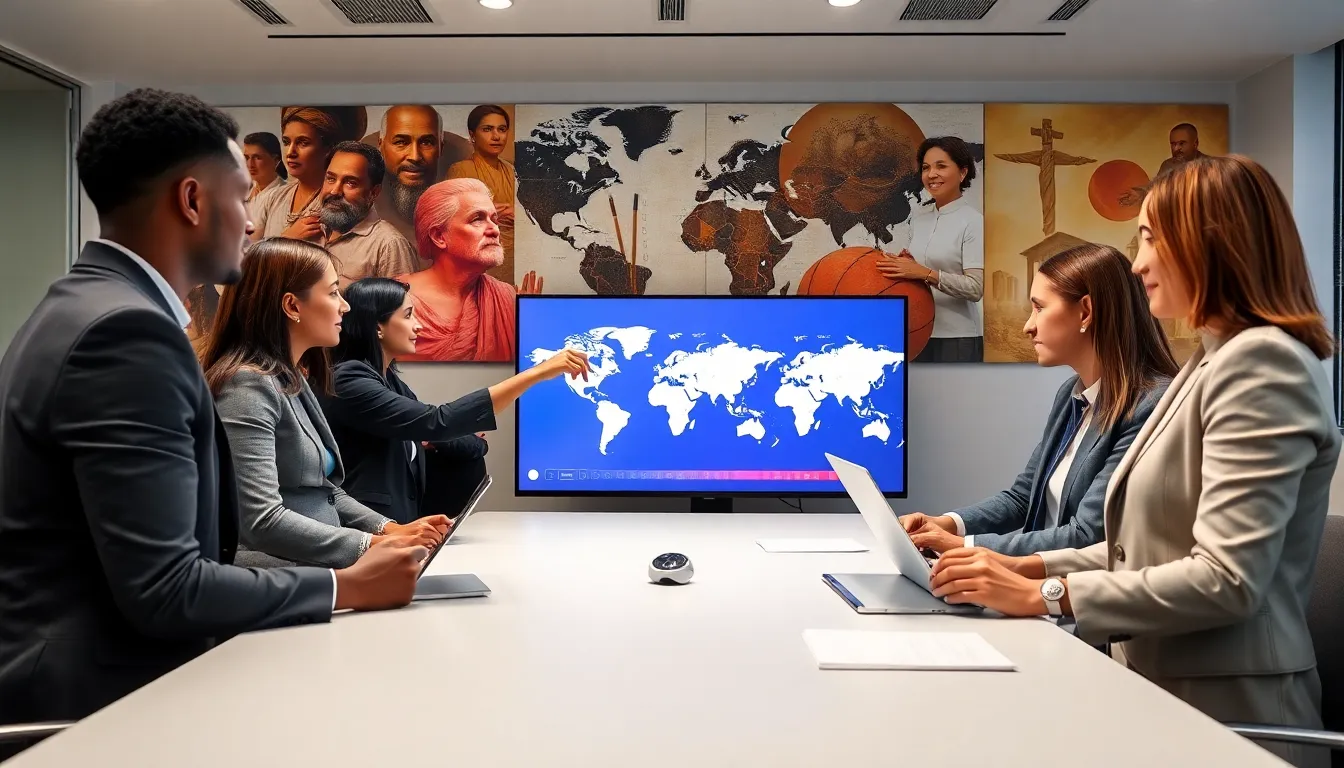Table of Contents
ToggleEver tried to pick a favorite world leader? The choices are plenty, and none quite hit the spot quite like a Master of Global Affairs. It’s a title that comes with gravitas and a hefty dose of responsibility. Navigating the intertwined web of international relations isn’t just for diplomats or political science majors anymore: it’s a fast-paced field that impacts our everyday lives. From power shifts to environmental policies, understanding global affairs can make you the most fascinating person at the dinner table – or at least, slightly less boring than the person discussing the weather. So, buckle up as we unpack the essentials of mastering global affairs.
Understanding Global Affairs

Historical Context of Global Affairs
Global affairs have roots as deep as civilization itself. From the Treaty of Westphalia in 1648, which effectively ended the Thirty Years’ War, to today’s digital diplomacy, history provides a framework to understand present dynamics. The evolution of nation-states has shaped contemporary interactions, with colonization and world wars serving as stark reminders of how intertwined our fates can be. For instance, the Cold War period established a strict bipolarity that dictated much of international policy, while the dissolution of the Soviet Union in 1991 opened doors for an increasingly complex multipolar world.
Current Trends in Global Relations
Today, global relations are anything but static. The rise of emerging economies like India and Brazil continues to shift power balances, while issues such as climate change and cyber warfare demand cooperation on an unprecedented scale. Multilateral organizations like the UN and NATO are adapting to these new realities, becoming platforms for dialogue rather than mere bureaucratic structures. The global landscape means countries are more interconnected than ever: one nation’s challenge can easily ripple across continents.
Understanding these historical contexts and current trends is essential for anyone aspiring to be a master in global affairs.
Key Concepts in Global Affairs
Power Dynamics in International Relations
Power isn’t just about military might: it encompasses economic influence, soft power, and international legitimacy. Realism, liberalism, and constructivism are vital theories that frame our understanding of power dynamics. A realist view might emphasize military strategies, while liberalism focuses on global governance and cooperation. Constructivism takes it a step further by insisting that ideas and identities shape how nations behave towards one another. That said, understanding where each country stands on this spectrum is crucial for analyzing global conflicts and collaborations.
Global Governance and Institutions
Who governs the globe? It’s a complex question. International institutions like the World Trade Organization (WTO) and the International Monetary Fund (IMF) play significant roles in shaping global policies. Often, these institutions serve as platforms where nations come together to work out their differences and collaborate on global issues. Learning how these institutions operate gives aspiring global affairs professionals the tools needed to navigate international complexities. By understanding the core principles of governance, you gain insight into the laws, treaties, and agreements that help keep the international system functioning.
The Role of Non-State Actors
Impacts of Technology on Global Affairs
In a world dominated by technology, non-state actors like corporations, NGOs, and social movements are wielding unprecedented influence in global affairs. Technology accelerates communication and can amplify grassroots movements, making the voice of the common person more powerful than ever. Think about it: social media campaigns can alter political landscapes overnight. The Arab Spring is a prime example where platforms like Twitter acted as organizing tools for change. Understanding the role of these non-state actors is paramount for anyone looking to make waves in international politics.
Environmental Issues in Global Policies
What do climate change, plastic pollution, and biodiversity loss have in common? They all require coordinated responses at the global level. Non-state actors are increasingly crucial in crafting environmental policy, pushing for changes that governments may lag in implementing. For instance, the Paris Agreement brought together nations to commit to reducing carbon emissions, but many NGOs and environmental activists played pivotal roles in keeping this issue alive in the global consciousness. Understanding this collaboration between state and non-state actors provides insight into how modern global governance functions.
Future Outlook for Global Affairs Professionals
Essential Skills for Mastering Global Affairs
So, what does it take to excel in this dynamic field? First and foremost, critical thinking is key. Being able to analyze complex issues and consider various perspectives is a trait every global affairs professional should cultivate. Communication skills, especially in networking and public speaking, are equally essential. Also, cultural competency allows one to navigate diverse environments successfully. In times of increasing globalization, understanding cultural nuances can be the difference between successful diplomacy and a diplomatic faux pas.
Career Opportunities in Global Affairs
The field of global affairs isn’t limited to think tanks and government roles. Opportunities abound in NGOs, multinational corporations, and academia. From policy analysts to international lawyers, the career paths are diverse and rewarding. Specializations in areas like cybersecurity, environmental policy, or international business can also increase employability. The bottom line? A career in global affairs not only offers variety but the chance to make a meaningful impact on the world stage.
Education and Training Pathways
Leading Programs in Global Affairs
So, where should one begin? Many top universities offer specialized programs in global affairs, drawing on diverse fields such as political science, economics, and international law. Prominent institutions like Georgetown University’s School of Foreign Service and Johns Hopkins University’s School of Advanced International Studies are renowned for their comprehensive curricula and networking opportunities. Investing time in these educational programs can lay a solid foundation for a successful career.
Networking and Professional Associations
Networking can feel daunting, but it’s crucial in global affairs. By joining professional associations such as the International Studies Association or the Council on Foreign Relations, aspiring professionals gain access to valuable resources, mentorship opportunities, and industry events. Engaging in these networks allows one to stay updated on trends and connect with established experts in the field, enhancing career prospects significantly.







